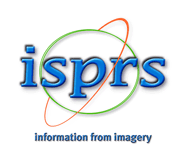ISPRS WG III/5
Remote Sensing for Inclusive Pathways to Equality and Environmental Health
Our Mission
The working group on "Remote Sensing for Inclusive Pathways to Equality and Environmental Health" is dedicated to advancing the interdisciplinary integration of remote sensing science within social science research. Its mission is to support and promote inclusive development pathways that enhance human dignity, promote equality, and ensure the well-being of all species within a healthy environment. By leveraging the insights provided by remote sensing, the group aims to address global challenges related to environmental degradation, inequality, and climate justice while empowering communities to achieve equitable living conditions.
Working Group Officers | ||
Chair | ||
 | Giovana Mira de Espindola UFPI – Federal University of Piauí Av. Universitária, s/n Tecnological Center, Ininga 64049-550 – Teresina BRAZIL +55 11 994341424
| |
Co-Chair | ||
 | Gary R Watmough School of Geosciences University of Edinburgh Room G02 Drummond Annex Surgeons Square, EH8 9XP UNITED KINGDOM +44 (0) 131 651 4447
| |
Co-Chair | ||
 | Ola Hall Inst. för Kulturgeografi och ekonomisk geografi Sölvegatan 12 223 62, Lund SWEDEN +46 46 222 84 09
| |
Secretary | ||
 | Vicente de Paula Sousa Júnior UFPI – Federal University of Piauí Av. Universitária, s/n Tecnological Center, Ininga 64049-550 – Teresina BRAZIL +55 86 9422-4401
| |
Terms of Reference
Promote debate on key interdisciplinary and epistemological issues such as:
How can we add value beyond what social scientists refer to as "simple measures"? This involves not only the challenge of interdisciplinarily integrating rich data sources, such as remote sensing, with limited data like household surveys, but also, addressing epistemological questions regarding domain knowledge and the assumptions underlying models.
Despite remarkable advancements in AI, machine learning, and remote sensing over the past decade, few downstream applications exist for studying economic and political livelihoods. This compartmentalization can be attributed, in part, to differing epistemological and interdisciplinary foundations.
Promote the integration of remote sensing science and social sciences research to accelerate the interdisciplinary implementation of the 2030 Agenda within the next six years.
Promote interdisciplinary perspectives in integrating remote sensing and social sciences research to support the implementation of the Paris Agreement.
Explore using remote sensing data in quali-quantitative approaches to advance mixed methods research in the social sciences, while addressing diverse epistemological contexts in studying environmental degradation, inequality, and climate justice.
Promote scientific research exploring novel applications of historical and new remote sensing databases and methodological innovations to generate valuable insights. The goal is to support the development of integrated social, economic, and environmental strategies, focusing on multi-scale, multi-sensor, and integrative approaches to orient public policies across distinct political arrangements.
Develop new methods, techniques, and approaches for integrating remote sensing data with demographic, economic, health, and environmental databases. Conduct studies to systematize these processes and propose standards for their implementation in national public policies
Test and evaluate the quality of global remote sensing-derived gridded databases on population, human settlements, and poverty in regional and local contexts, and debate their appropriate use for environmental degradation, inequality, and climate justice policymaking
Apply remote sensing methods to assess the vulnerability of socioecological systems in various regions across the Global South.
Promote debate on how a set of Earth Observation (EO) methods may integrate new semi-transferable approaches, increasing the adoption of EO in policymaking and encouraging more policymakers and decision-makers to understand and utilize the outputs from these platforms.
Initiate discussions on data policies, privacy concerns, and data access related to the use of remote sensing data in social science research.
Strengthen collaboration with organizations such as the IUSSP (International Union for the Scientific Study of Population), UNDP (United Nations Development Programme), UNFPA (United Nations Population Fund), UN-Habitat, WHO (World Health Organization), and its regional offices in Africa, the Americas, Eastern Mediterranean, Europe, South-East Asia, and the Western Pacific.
WG III/5






